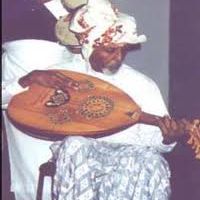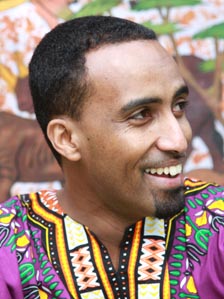Overview
Traditional Somali music

Somali people have a rich musical heritage centered on traditional Somali folklore.
Somali songs are pentatonic. That is, they only use five pitches per octave in contrast to a heptatonic (seven note) scale such as the major scale. At first listen, Somali music might be mistaken for the sounds of nearby regions such as Oromo in Ethiopia, Sudan or the Arabian Peninsula, but it is ultimately recognizable by its own unique tunes and styles. Somali songs are usually the product of collaboration between lyricists (lahamiste), songwriters (abwaan), and vocalists (odka or "voice"). [1] The Somali word for dance is ciyaar. [2]
Traditional instruments prominently featured in the music of Somalia include the oud lute (kaban). It is often accompanied by small drums and a reed flute in the background. However, heavy percussion and metallic sounds are uncommon within Somalia. [1] The riverine and coastal areas of Somalia use a wide variety of traditional instruments including: [3] [4] [5]
- Membranophones: nasaro, mokhoddon and masoondhe (high and heavy drums), reeme, jabbu and yoome (small drums);
- Aerophones: malkad and siinbaar (flutes), sumaari (double clarinet), fuugwo (trumpet) buun, muufe and gees-goodir (horns);
- Idiophones: shagal (metal clappers), shanbaal (wooden clappers), shunuuf (vegetable ankle rattles), tenegyo (xylophone);
- Chordophones: shareero (lyre), kinaandha (lute), madhuube (thumb piano), seese (one-chord violin)


